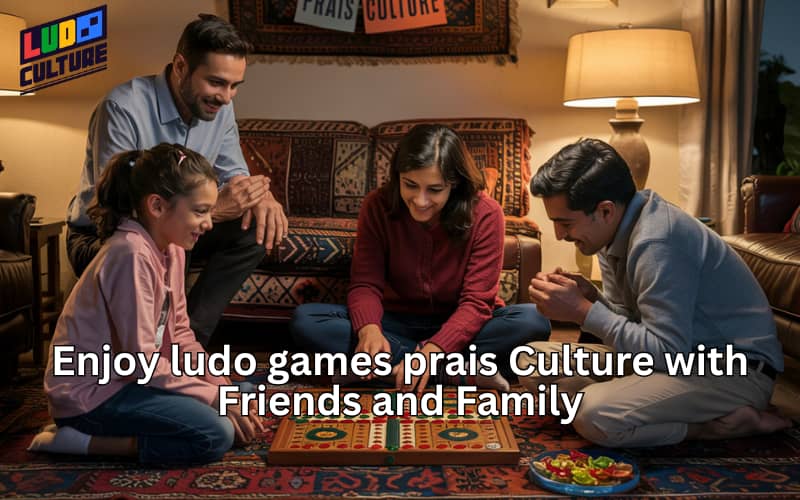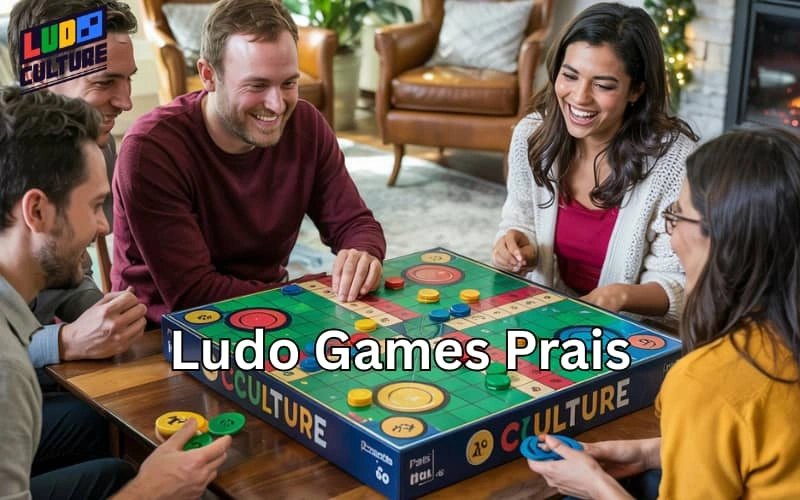
Enjoy ludo games prais Culture with Friends and Family
Ludo is not just a game, it’s a tradition that has been passed down through generations. Known for its simplicity and fun, Ludo has brought people together for countless moments of joy. In many households, playing Ludo has become a cherished activity, especially when it’s done with friends and family. The praise culture surrounding Ludo games is significant Ludo Culture, as it brings a sense of connection, friendly competition, and shared experiences. This article explores how the culture of praising Ludo games fosters a sense of unity and creates lasting memories for all involved.
The Enduring Appeal of Ludo Games
Ludo has roots that date back centuries, and it continues to remain one of the most popular board games across the globe. What makes Ludo particularly special is its simplicity, making it accessible to people of all ages. From children to grandparents, anyone can jump into the game without needing complex instructions. The game’s rules are straightforward, yet it offers enough strategy and excitement to keep players engaged. The thrill of rolling the dice, moving pieces around the board, and competing to reach the finish line gives everyone a reason to gather around and enjoy each other’s company.
In a world dominated by technology, where people often find themselves glued to their screens, Ludo offers a refreshing break from the digital world. It provides an opportunity for face-to-face interaction, fostering meaningful connections and allowing family members to bond in ways that texting or social media cannot replicate.
Why Praise Culture Matters in Ludo Games
The praise culture that surrounds Ludo games plays a crucial role in enhancing the experience. Praise in Ludo is not just about the winner; it’s about recognizing the effort, strategy, and sportsmanship of all players. Celebrating achievements, whether big or small, boosts the morale of everyone involved. In many ways, Ludo is as much about the enjoyment of playing as it is about the joy of winning or losing.
Praising someone for a well-thought-out move, for taking a risk, or even for making a comeback from a difficult position encourages positive reinforcement. This creates an atmosphere of encouragement where players feel appreciated regardless of the outcome. Whether it’s complimenting someone for their smart strategy or applauding their resilience, praise makes the game more fun and engaging for everyone.
Creating Lasting Memories with Friends and Family
Ludo games often become more than just a pastime. They transform into a way to create lasting memories with loved ones. Family game nights centered around Ludo are a great way to spend quality time together. The joy of laughing, celebrating small victories, and even light-heartedly teasing each other about a mistake all contribute to creating bonds that last a lifetime.
Children learn valuable life skills during these sessions. They not only develop their ability to strategize and think critically, but they also gain an understanding of healthy competition, patience, and the importance of good sportsmanship. These skills, learned through a game of Ludo, stay with them as they grow older and apply to other areas of life.
Equally, for adults, playing Ludo with friends and family is an opportunity to reconnect and unwind. It offers a moment of pause from the stresses of daily life, allowing everyone to come together and enjoy each other’s company. The casual nature of the game makes it easy to integrate into social gatherings, whether it’s during a holiday, a weekend get-together, or a simple evening at home.
Ludo Games Praise: Building a Culture of Support
The act of praising during a Ludo game is an integral part of building a positive culture of support and encouragement. Rather than focusing solely on the end result, the culture of praise emphasizes the value of the journey. Recognizing effort, celebrating perseverance, and highlighting the joy of playing together makes the game enjoyable for everyone, not just for those who win.
In many families, there is a tradition of encouraging players regardless of the outcome. The praise culture goes beyond the typical competitive aspects of the game, emphasizing the collective enjoyment of the moment. Even if someone doesn’t win, they are celebrated for their participation and for being a part of the experience. This sense of inclusion helps ensure that everyone feels valued and appreciated.
Moreover, the praise culture can also act as a motivator for improvement. When a player receives praise for their clever tactics or creative strategies, it encourages them to keep honing their skills and to approach the game with confidence. In a way, the positive feedback serves as a stepping stone for future games, making everyone more eager to play again and again.
Ludo Games and Strengthening Bonds
Ludo games go beyond providing entertainment; they serve as a means of strengthening bonds between friends and family. With its simple format, it allows people to focus on the interactions rather than complex rules or techniques. This shared experience is often what makes playing Ludo with loved ones so special.
For families, Ludo is often a bonding ritual that helps maintain close relationships. Whether it’s parents teaching children how to play, or siblings competing against each other, the game becomes a shared experience that creates lasting memories. These memories become treasured moments that are recalled with fondness years later.
For friends, Ludo provides a platform for laughter and conversation. As they play, they share stories, jokes, and updates on their lives, all while engaging in the friendly competition that Ludo fosters. The beauty of this game is that it encourages connection without the distractions of technology, allowing for a deeper, more meaningful interaction between players.
Conclusion
The culture of praise in Ludo games elevates the experience from just a simple pastime to an important part of family and social life. It brings people together, fosters friendly competition, and encourages positive reinforcement. Whether played with family or friends, Ludo provides an opportunity to create memories, strengthen relationships, and cultivate a sense of appreciation for everyone involved. The praise culture surrounding Ludo enhances the enjoyment and teaches valuable life lessons such as good sportsmanship, patience, and resilience. Next time you sit down to play Ludo with loved ones, remember to celebrate every move, every strategy, and every player, for it is the praise and the togetherness that make the game truly special.

